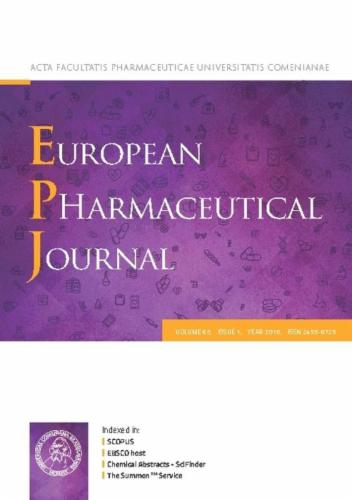Impact of pneumatic tube transportation on the aggregation of monoclonal antibodies in clinical practice
IF 4.3
3区 医学
Q1 PHARMACOLOGY & PHARMACY
引用次数: 0
Abstract
Postproduction handling and in-hospital transportation of antibody drugs cause mechanical stress, including interfacial and shear stress, that can induce antibody unfolding and aggregation. The handling practices differ significantly between hospitals and the impact on protein stability is unknown. For example, the mechanical stress caused by transport via pneumatic tube systems (PTS) on therapeutic antibody aggregation is a potential safety and quality gap.
The aim of this study was to investigate whether mechanical stress and PTS transportation in a hospital cause aggregation of five commonly used antibody drugs diluted in infusion bags.
Orthogonal analytical methods showed that the handling and PTS transportation in this hospital did not cause aggregation of the investigated mAbs. The absence of aggregation could be explained by the reduction of interfacial stress due to headspace removal from the infusion bags and a mechanical sensor indicated that there was also only a moderate amount of mechanical stress caused by transportation with this particular PTS.
Although this case study focuses on five antibody drugs and the practices in one hospital, the work demonstrates how to evaluate whether other handling and transportation practices cause significant mechanical stress that could compromise the quality and safety of antibody drugs.

气管运输对临床实践中单克隆抗体聚集的影响。
抗体药物的生产后处理和院内运输会产生机械应力,包括界面应力和剪切应力,从而诱发抗体解折和聚集。不同医院的处理方法差异很大,对蛋白质稳定性的影响尚不清楚。例如,通过气管系统(PTS)运输对治疗性抗体聚集造成的机械应力就是一个潜在的安全和质量漏洞。本研究旨在调查医院中的机械应力和气管系统运输是否会导致输液袋中稀释的五种常用抗体药物聚集。正交分析方法表明,医院中的处理和 PTS 运输不会导致所调查的 mAbs 出现聚集。没有聚集的原因可能是输液袋顶空去除后界面应力减小,而机械传感器显示,使用这种特殊的 PTS 运输也只产生了适量的机械应力。虽然本案例研究的重点是五种抗体药物和一家医院的操作方法,但这项工作展示了如何评估其他处理和运输方法是否会造成严重的机械应力,从而影响抗体药物的质量和安全性。
本文章由计算机程序翻译,如有差异,请以英文原文为准。
求助全文
约1分钟内获得全文
求助全文
来源期刊
CiteScore
9.60
自引率
2.20%
发文量
248
审稿时长
50 days
期刊介绍:
The journal publishes research articles, review articles and scientific commentaries on all aspects of the pharmaceutical sciences with emphasis on conceptual novelty and scientific quality. The Editors welcome articles in this multidisciplinary field, with a focus on topics relevant for drug discovery and development.
More specifically, the Journal publishes reports on medicinal chemistry, pharmacology, drug absorption and metabolism, pharmacokinetics and pharmacodynamics, pharmaceutical and biomedical analysis, drug delivery (including gene delivery), drug targeting, pharmaceutical technology, pharmaceutical biotechnology and clinical drug evaluation. The journal will typically not give priority to manuscripts focusing primarily on organic synthesis, natural products, adaptation of analytical approaches, or discussions pertaining to drug policy making.
Scientific commentaries and review articles are generally by invitation only or by consent of the Editors. Proceedings of scientific meetings may be published as special issues or supplements to the Journal.

 求助内容:
求助内容: 应助结果提醒方式:
应助结果提醒方式:


